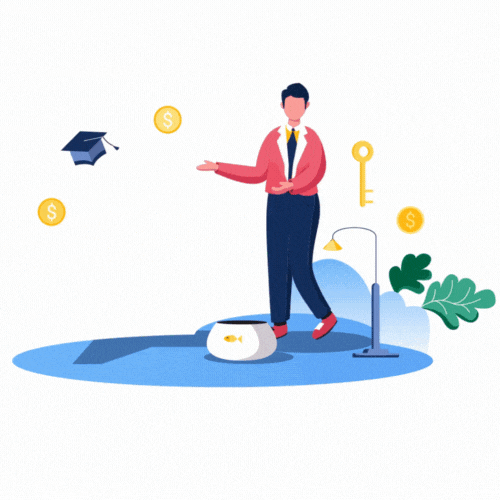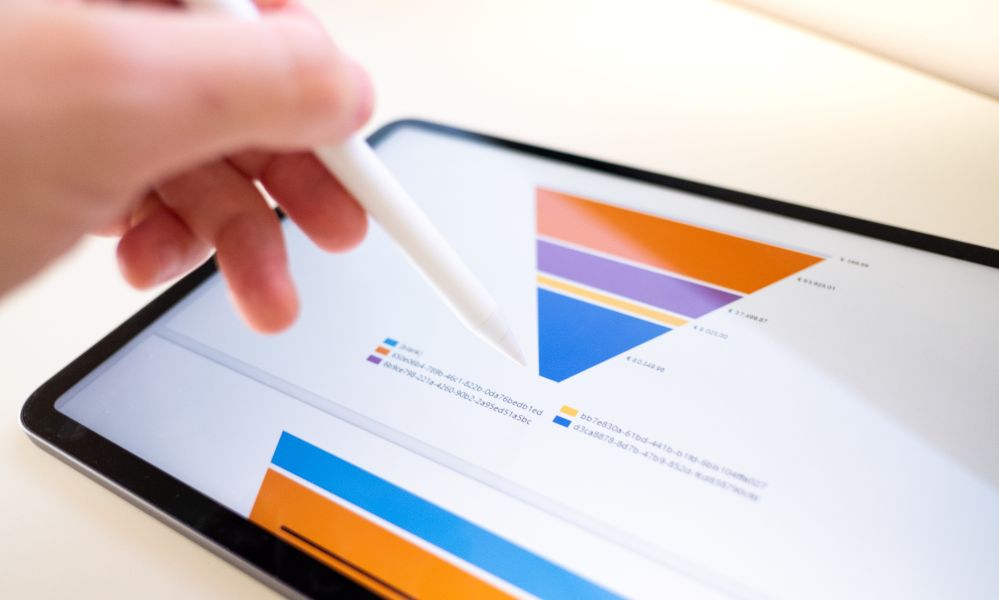
Marketing Funnel
Educate, Empower, Excel
A single platform for teaching anything—online or offline.
Get Your Free AccountMarketing Funnel: Understanding and Creating Effective Strategies
Educate, Empower, Excel
A single platform for teaching anything—online or offline.
Get Your Free AccountIntroduction to Marketing Funnels
Why does every business swear by its marketing funnels? Because it is a strategic pathway through which they nurture leads and convert potential customers into loyal brand advocates. Discover with Edulyte how mastering the marketing funnel can drive your customer engagement and growth. Get familiar with the pivotal details of marketing funnel examples, marketing funnel builder, marketing funnel lead generation and others.
Marketing Funnel Meaning
What is the ‘marketing funnel meaning’? Think of the marketing funnel as a game plan that visually represents the customer journey, from initial awareness of a product or service to the final purchase and beyond.
A marketing funnel helps businesses optimise marketing efforts by identifying key marketing funnel stages and touchpoints along the customer’s path. Consequently, your business marketers can tailor the brand messaging and activities and guide potential customers towards conversion.
How Do Marketing Funnels Work?
The ‘marketing funnel meaning’ states that it has different stages. By firmly comprehending how customers move between these marketing funnel stages, you can launch targeted marketing techniques to follow leads, work on them, and increase conversions and brand loyalty.

Stages of a Marketing Funnel
A marketing funnel has distinct stages. A business’s growth and success depend on how well it understands these marketing funnel stages.
Marketing Funnel Stages
The different marketing funnel stages are given here.
- Awareness: The initial stage, where potential customers are exposed to a brand or product. It involves creating visibility and generating interest through various marketing schemes.
- Interest: The next stage occurs when individuals become curious and seek more information about your product. Content marketing, SEO, and social media engagement come into play. These generate interest and trust among potential customers.
- Decision: At this stage, potential customers evaluate options and consider the best solution. Business activities like product demos and customer testimonials influence their decision.
- Action: The final stage is the conversion point. Here, potential customers become paying customers. Clear calls to action, attractive offers, and a seamless purchase experience are essential for driving your business conversions.
Marketing Funnel Awareness
Marketing funnel awareness is the foundational stage of your marketing funnel. Here are strategies for creating awareness at the top of the funnel.
- Content Marketing: Create informative and engaging content, including blog posts, articles, and videos, to attract and educate potential customers.
- Search Engine Optimisations (SEO): Optimise your website and content. Such a step ensures that your business page ranks higher in search engine results, increasing your visibility.
- Social Media Marketing: Utilise various social media platforms like X (formerly Twitter), Facebook, and Instagram to share content and engage with the audience. Building a community on social media boosts your chances of conversions.
- Paid Advertising: Employ targeted online and offline advertising to reach a wider audience and generate leads.
- Events and Sponsorships: Participate in industry events, conferences, and sponsorships to increase brand visibility.
Marketing Funnel Lead Generation
Moving from marketing funnel awareness, we go to the next stage. In marketing funnel lead generation, potential customers show initial interest in your brand or product but require more information.
Here are a few techniques of marketing funnel lead generation. These are handy for the middle or interest stage.
- Lead Magnets: Offer valuable resources including ebooks, whitepapers or webinars, in exchange for contact information.
- Email Marketing: Build email lists to deliver targeted content, promotions, and updates.
- Landing Pages: Create dedicated landing pages to capture leads effectively.
- Social Media Engagement: Interact with your audience on social media platforms to build relationships and generate leads.
Conversion and Retention
In the final stage of the marketing funnel conversion, nurtured leads are transformed into paying customers. It is a significant element of your marketing funnel strategy.
- Calls to Action (CTAs): Guide customers towards the desired action with prominent and persuasive CTAs.
- Optimised Landing Pages: Create dedicated landing pages aligning with specific campaigns.
- Personalised Offers and Messaging: Customise your offers and communication to resonate with individual customer needs and pain points.
- Customer Service: Provide outstanding customer support to build loyalty and satisfaction.
- Loyalty Programs: Implement rewards and loyalty programs to incentivise customers to return to your brand.
- Customer Feedback: Seek and incorporate customer feedback to improve products and services.
- Upselling and Cross-selling: Offer complementary products or upgrades to enhance customer value.
Creating a Marketing Funnel
Your business needs to map out every stage of the marketing funnel with methods to nurture leads, optimise conversions and build customer loyalty. Learn how to do all this effortlessly.
Marketing Funnel Builder
These are marketing funnel builder software and tools for developing online sales funnels, basically to smoothen the process of creating and managing sales funnels. They throw in great functionality, including landing page creation, email marketing, automation, and in-built analytics.
- ClickFunnels: is an industry leader, and for a good reason – its ease of use is second to none. Drag-and-drop features, pre-built funnel templates, and seamless integration with email marketing mean products can go live incredibly fast.
- HubSpot: One of the more prominent names in marketing funnel builders is that of HubSpot. It has robust tools to create and manage marketing funnels within its Marketing Hub. With this, you get CRM integration, email marketing, lead capture forms, landing pages, and in-depth analytics—all in one place.
- Leadpages: If you’re looking for something ideal for landing pages, this marketing funnel builder is your saviour. It has a drag-and-drop UI with various templates and integrates with popular email marketing and CRM tools.
- Unbounce: offers the construction and optimisation of landing pages. Advanced A/B testing, customisable templates, and seamless integrations with marketing tools are just a few critical features of Unbounce.
Marketing Funnel Template
You get structures and easy-to-use marketing funnel templates for creating effective marketing funnels. Here are some popular ones.
- Lead Generation Funnel Templates: These will hold all the stages of marketing funnel lead generation and nurturing, like landing pages, lead magnets—ebooks, checklists—email sequences, and thank-you pages. These marketing funnel templates help businesses attract potential customers and guide them through the sales process up until the decision phase.
- Sales Funnel Templates: These sales funnel templates focus on driving conversions, including product pages, order forms, upsell and cross-sell pages, and checkout processes.
- Webinar Funnel Templates: These templates especially fit businesses that offer webinars as a marketing tool. They often include registration pages, confirmation emails, reminder sequences, and post-webinar follow-ups.
- Product Launch Funnel Templates: These templates are tailor-made for new product launches, pre-launch landing pages, teaser emails, launch event pages, and post-launch follow-ups.
- Membership Funnel Templates: These templates cover everything a business needs to run subscription-based services or membership programs from start to finish.
Marketing Funnel Content
What marketing funnel content should your business use at each marketing funnel stage? Uncover details to upgrade your marketing funnel.
- Awareness Stage: It includes informative blog posts, educational videos, infographics, social media posts, and podcasts. You can present content about resolving common pain points and getting your brand introduced as a value-added solution.
- Interest Stage: Offer in-depth guides, whitepapers, case studies, webinars, email courses, and product comparison sheets as marketing funnel content. This step further educates potential customers and establishes your brand as an authority in solving their problems.
- Decision Stage: This includes customer testimonials, demo videos, free trials, FAQs, pricing pages, and live demos.
- Action Stage: Content types at the bottom of the funnel include clear calls to action, special offers, discounts, guarantee statements, and easy-to-complete forms.
Marketing Funnel Example
Successful marketing funnels differ by industry and even business model. However, some famous marketing funnel examples show exactly how to do it right:
- Netflix: Boasting one of the best customer experiences, Netflix’s funnel begins with discovering content, then bingeing, and keeping customers retained through great recommendations and an extensive library of content.
- HubSpot: As a marketing and sales software company, HubSpot operates a funnel touting education, lead nurturing, and customer success by providing valuable content, free tools, and CRM integration.
- Amazon: This marketing funnel example is quoted extensively in the business world. The e-commerce behemoth promotes product discovery, purchase facilitation, and customer loyalty through search optimisation, recommendations, and seamless shopping experiences.
Strategies for an Effective Marketing Funnel
Your marketing funnel has to be impactful to convert individuals into loyal customers. Edulyte uncovers how to develop your marketing funnel strategy, tips to optimise it and how to measure its success.
Marketing Funnel Strategy
- Define Goals: Set specific, measurable, attainable, relevant, and time-bound (SMART) objectives at every stage of the funnel for an effective strategy.
- Identify target audience: Developing detailed customer profiles will help you better understand your customer’s needs and pain points.
- Write compelling content: Come up with high-quality content that speaks to your customers’ concerns and cares about delivering value at each step.
- Select appropriate channels: This means picking marketing channels that efficiently reach target customers and address their favourite modes of communication.
- Measurement and Optimisation: Continuously monitor the performance metrics for areas of improvement and thereby refine them.
Marketing Funnel Optimisation
Awareness Stage:
- Expand reach through different channels.
- Refine targeting to attract the target audience.
- Experiment with different messaging and creative formats.
Interest Stage:
- Create high-quality, relevant content.
- Optimise content for search engines.
- Build trust and credibility through social outreach.
Decision Stage:
- Articulate your value proposition.
- Address customer objections and concerns.
- Implement strong calls to action (CTAs).
Action Stage:
- Simplify the purchase process.
- Offer multiple payment options.
Retention Stage:
- Implement loyalty programs and incentives.
- Provide exceptional customer support.
- Encourage customer reviews and referrals.
Measuring Success
- Conversion Rates: These are the percentage rate of leads that get converted at every stage of the funnel.
- Customer Acquisition Cost: Calculate what it costs to get a new customer.
- Customer Lifetime Value: It is the total amount of money a customer is worth to your business over their lifetime.
- Lead generation rate: Check the number of leads registered against website visitors.
- Quality of Leads: It includes the quality of leads analysed on demographics, behaviour, and level of engagement.
- MQL: Marketing Qualified Leads refer to the number of leads interested in your product or service.
- SQL: Sales Qualified Leads are the count of leads ready for the sales process.
- ROI: The Return on Investment should be determined against your marketing investments.
Advanced Marketing Funnel Techniques
You are well aware of marketing funnel techniques, but advanced techniques can skyrocket your business’s customer count. Master strategies like personalisation, segmentation, and automation to drive exceptional results.
Personalisation and Segmentation
How do you use personalisation and segmentation for your audience?
Personalised Content:
Such personalisation is for the individual tastes and behaviours of your target audience. It further enhances relevance and strikes a chord with them. Examples include dynamic marketing funnel content in emails, product recommendations, and landing-page customisation according to their data.
Audience Segmentation:
The audience can be segmented demographically based on behaviour and interests so that targeted messaging makes a difference. Such an approach would involve tailoring marketing efforts to the needs of particular segments. It further includes improving engagement, which will finally drive higher conversion rates.
Automation in Marketing Funnels
Implementing automation in marketing funnels streamlines the funnel process.
- Lead Nurturing: Email automation with automated sequences can be sent out based on a lead’s behaviour or interaction with the brand. It can be done with proper timing without needing constant manual intervention.
- Workflow Automation: With this feature, you can automate internal processes for lead scoring, task assignment, or follow-up actions. Subsequently, your leads never get lost and will constantly be shuttled down the funnel with the utmost efficacy.
- Unique Campaigns: Automation enables one to create hyper-personalised campaigns based on user behaviour and preferences. From personalised recommendations to displaying targeted ads, automation offers an opportunity to deliver the right message at the right time to the right person.
- Data management: Automate the collection, analysis, and use of customer data to enhance segmentation, targeting, and hence overall campaign performance.
Conclusion
It is not hyperbole to state that a well-structured marketing funnel can make a business successful. By understanding the customer journey and employing strategic techniques, companies can optimise conversions, foster loyalty, and drive growth. Continuous optimisation and data-driven decision-making are essential for achieving long-term success.
Summary of Key Points
- Strategic Planning: Develop a customised marketing funnel strategy aligned to business goals and audience needs.
- Effective Marketing Funnels: These require tailored strategies for each stage, from awareness to retention.
- Marketing Funnel’s Success: Optimisation, personalisation, and automation are crucial for maximising results.
Step Up Your Teaching Game Today!
Sign-up for a personalised dashboard, teaching tools, and unlimited possibilities!

Frequently Asked Questions
A marketing funnel is a model that represents the stages a customer goes through, from first becoming aware of a product to making a purchase. It helps businesses understand and optimise the customer journey.
The main stages of a marketing funnel are Awareness, Interest, Decision, and Action. Some funnels also include stages like Retention and Advocacy to ensure long-term customer engagement.
Sure! A marketing funnel could involve a potential customer seeing a social media ad (Awareness), clicking to read a blog post (Interest), downloading a free ebook (Decision), and finally purchasing a product (Action).
A marketing funnel builder is a tool or software that helps businesses create, visualise, and manage their marketing funnels. Examples include ClickFunnels, Leadpages, and HubSpot.
To generate leads, create valuable content that attracts your target audience at the Awareness stage. Use lead magnets like free ebooks or webinars to capture contact information during the Interest stage, and nurture these leads with email marketing to move them towards a purchase.
At the Awareness stage, use blog posts, social media content, and infographics. For the Interest stage, offer ebooks, webinars, and case studies. During the Decision stage, provide product demos, free trials, and customer testimonials. Finally, at the Action stage, use clear calls-to-action and limited-time offers.
Create awareness using SEO, social media marketing, paid advertising, and content marketing. The goal is to attract potential customers and make them aware of your brand and products.
A marketing funnel template is a pre-designed framework that helps businesses quickly create a marketing funnel. It outlines the stages, types of content, and actions needed to guide potential customers through the funnel.
Start by identifying your target audience and their needs. Map out the customer journey from Awareness to Action. Create content and offers for each stage, and use marketing tools to track and optimise the performance of your funnel.
Key metrics include website traffic (Awareness), engagement rates (Interest), lead conversion rates (Decision), and sales conversion rates (Action). Tracking these metrics helps you identify bottlenecks and areas for improvement in your funnel.

